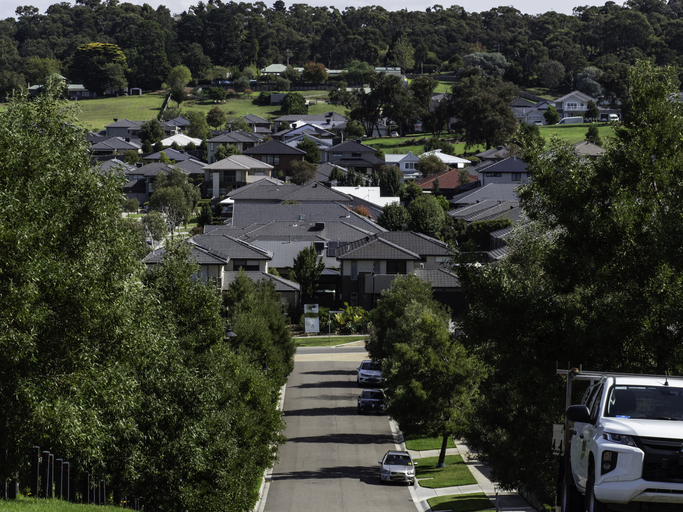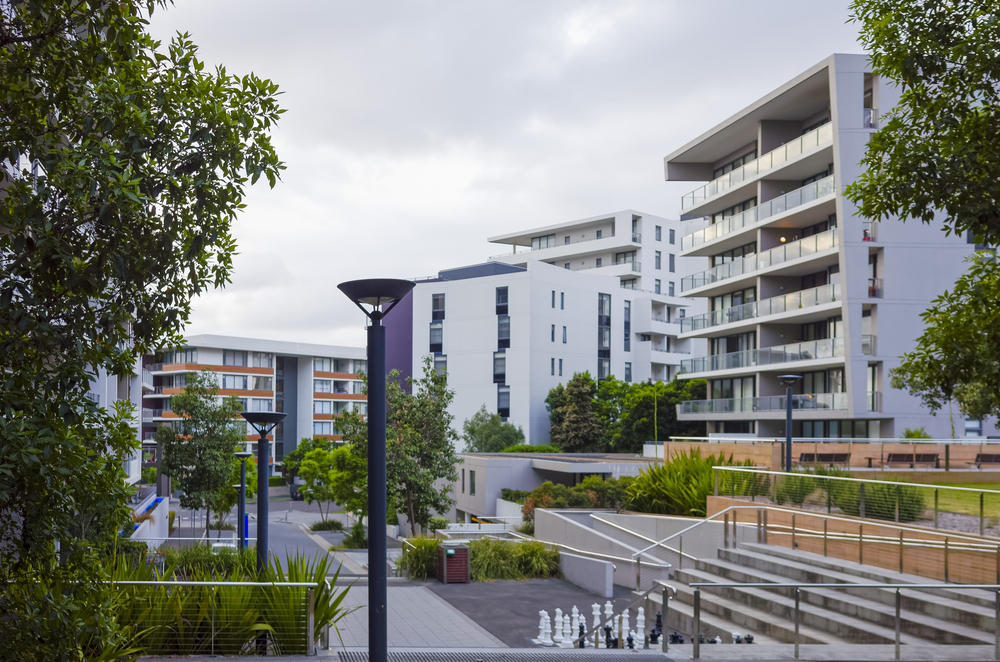Australian property values bottom out as borrowers anticipate end of rate hikes
The latest CoreLogic data points to an end to falling housing values across Australian capitals
Housing values appear to have bottomed out, new data from CoreLogic reveals. The latest Home Value Index showed values increased by 0.5 percent over April, after a rise of 0.6 percent in March.
Australian housing values dropped -9.1 percent between May 2022 and February 2023 but are now higher by 1.0 percent over the past three months.
Sydney values continued to increase over April, recording a 1.3 percent rise. This brings values up by 3.0 percent since January this year. All four of Australia’s largest capitals have now seen rises in housing values over the past three months.
CoreLogic research director, Tim Lawless, says prices are most likely on the way up again, which poses potential problems for the market as demand continues to outstrip supply.
“A significant lift in net overseas migration has run headlong into a lack of housing supply,” he said. “While overseas migration would normally have a more direct correlation with rental demand, with vacancy rates holding around one percent in most cities, it’s reasonable to assume more people are fast tracking a purchasing decision simply because they can’t find rental accommodation.”
Recent pressure on the RBA Board to put a hold on further interest rate increases had increased perceptions that they would either stabilise at their current level, or near to it. The uptick in values while interest rates remain at above average levels has a precedent.
“The last time we saw housing values trending higher through a rising interest rate environment was during the mid-to-late 2000s when the mining boom was underway,” Mr Lawless said. “This period was also characterised by surging net overseas migration that contributed significantly to housing demand.”
The Home Value Index also revealed that low levels of supply were continuing to support housing values as the numbers of newly listed properties, with the four-week trend at around -14 percent below average for this time of year.
The RBA Board will meet tomorrow to discuss the possibility of another increase in the cash rate. Senior economist at PropTrack, Eleanor Creagh said there was a reasonable possibility that a further rise would be put on hold as the full impact of previous increases played out.
“In April, inflation was higher and the labour market remained tight, which saw the board consider raising the cash rate another 25 basis points,” she said. “Instead, it opted to hold the cash rate steady at 3.60 percent, giving the RBA room to pause and assess how economic conditions unfold.
“There is still a way to go in returning inflation to the target range, but with the impact of higher interest rates yet to fully impact household cash flows, and set to do so in months ahead, we’re likely to continue seeing inflation move lower. This gives the RBA leeway for a continued period of patience in May.”
This stylish family home combines a classic palette and finishes with a flexible floorplan
Just 55 minutes from Sydney, make this your creative getaway located in the majestic Hawkesbury region.
The remote northern island wants more visitors: ‘It’s the rumbling before the herd is coming,’ one hotel manager says
As European hot spots become overcrowded , travellers are digging deeper to find those less-populated but still brag-worthy locations. Greenland, moving up the list, is bracing for its new popularity.
Aria Varasteh has been to 69 countries, including almost all of Europe. He now wants to visit more remote places and avoid spots swarmed by tourists—starting with Greenland.
“I want a taste of something different,” said the 34-year-old founder of a consulting firm serving clients in the Washington, D.C., area.
He originally planned to go to Nuuk, the island’s capital, this fall via out-of-the-way connections, given there wasn’t a nonstop flight from the U.S. But this month United Airlines announced a nonstop, four-hour flight from Newark Liberty International Airport in New Jersey to Nuuk. The route, beginning next summer, is a first for a U.S. airline, according to Greenland tourism officials.
It marks a significant milestone in the territory’s push for more international visitors. Airlines ran flights with a combined 55,000 seats to Greenland from April to August of this year, says Jens Lauridsen, chief executive officer of Greenland Airports. That figure will nearly double next year in the same period, he says, to about 105,000 seats.
The possible coming surge of travellers also presents a challenge for a vast island of 56,000 people as nearby destinations from Iceland to Spain grapple with the consequences of over tourism.
Greenlandic officials say they have watched closely and made deliberate efforts to slowly scale up their plans for visitors. An investment north of $700 million will yield three new airports, the first of which will open next month in Nuuk.
“It’s the rumbling before the herd is coming,” says Mads Mitchell, general manager of Hotel Nordbo, a 67-room property in Nuuk. The owner of his property is considering adding 50 more rooms to meet demand in the coming years.
Mitchell has recently met with travel agents from Brooklyn, N.Y., South Korea and China. He says he welcomes new tourists, but fears tourism will grow too quickly.
“Like in Barcelona, you get tired of tourists, because it’s too much and it pushes out the locals, that is my concern,” he says. “So it’s finding this balance of like showing the love for Greenland and showing the amazing possibilities, but not getting too much too fast.”
Greenland’s buildup
Greenland is an autonomous territory of Denmark more than three times the size of Texas. Tourists travel by boat or small aircraft when venturing to different regions—virtually no roads connect towns or settlements.
Greenland decided to invest in airport infrastructure in 2018 as part of an effort to expand tourism and its role in the economy, which is largely dependent on fishing and subsidies from Denmark. In the coming years, airports in Ilulissat and Qaqortoq, areas known for their scenic fjords, will open.
One narrow-body flight, like what United plans, will generate $200,000 in spending, including hotels, tours and other purchases, Lauridsen says. He calls it a “very significant economic impact.”
In 2023, foreign tourism brought a total of over $270 million to Greenland’s economy, according to Visit Greenland, the tourism and marketing arm owned by the government. Expedition cruises visit the territory, as well as adventure tours.
United will fly twice weekly to Nuuk on its 737 MAX 8, which will seat 166 passengers, starting in June .
“We look for new destinations, we look for hot destinations and destinations, most importantly, we can make money in,” Andrew Nocella , United’s chief commercial officer, said in the company’s earnings call earlier in October.
On the runway
Greenland has looked to nearby Iceland to learn from its experiences with tourism, says Air Greenland Group CEO Jacob Nitter Sørensen. Tiny Iceland still has about seven times the population of its western neighbour.
Nuuk’s new airport will become the new trans-Atlantic hub for Air Greenland, the national carrier. It flies to 14 airports and 46 heliports across the territory.
“Of course, there are discussions about avoiding mass tourism. But right now, I think there is a natural limit in terms of the receiving capacity,” Nitter says.
Air Greenland doesn’t fly nonstop from the U.S. because there isn’t currently enough space to accommodate all travellers in hotels, Nitter says. Air Greenland is building a new hotel in Ilulissat to increase capacity when the airport opens.
Nuuk has just over 550 hotel rooms, according to government documents. A tourism analysis published by Visit Greenland predicts there could be a shortage in rooms beginning in 2027. Most U.S. visitors will stay four to 10 nights, according to traveler sentiment data from Visit Greenland.
As travel picks up, visitors should expect more changes. Officials expect to pass new legislation that would further regulate tourism in time for the 2025 season. Rules on zoning would give local communities the power to limit tourism when needed, says Naaja H. Nathanielsen, minister for business, trade, raw materials, justice and gender equality.
Areas in a so-called red zone would ban tour operators. In northern Greenland, traditional hunting takes place at certain times of year and requires silence, which doesn’t work with cruise ships coming in, Nathanielsen says.
Part of the proposal would require tour operators to be locally based to ensure they pay taxes in Greenland and so that tourists receive local knowledge of the culture. Nathanielsen also plans to introduce a proposal to govern cruise tourism to ensure more travelers stay and eat locally, rather than just walk around for a few hours and grab a cup of coffee, she says.
Public sentiment has remained in favour of tourism as visitor arrivals have increased, Nathanielsen says.
—Roshan Fernandez contributed to this article.
This stylish family home combines a classic palette and finishes with a flexible floorplan
Just 55 minutes from Sydney, make this your creative getaway located in the majestic Hawkesbury region.


















